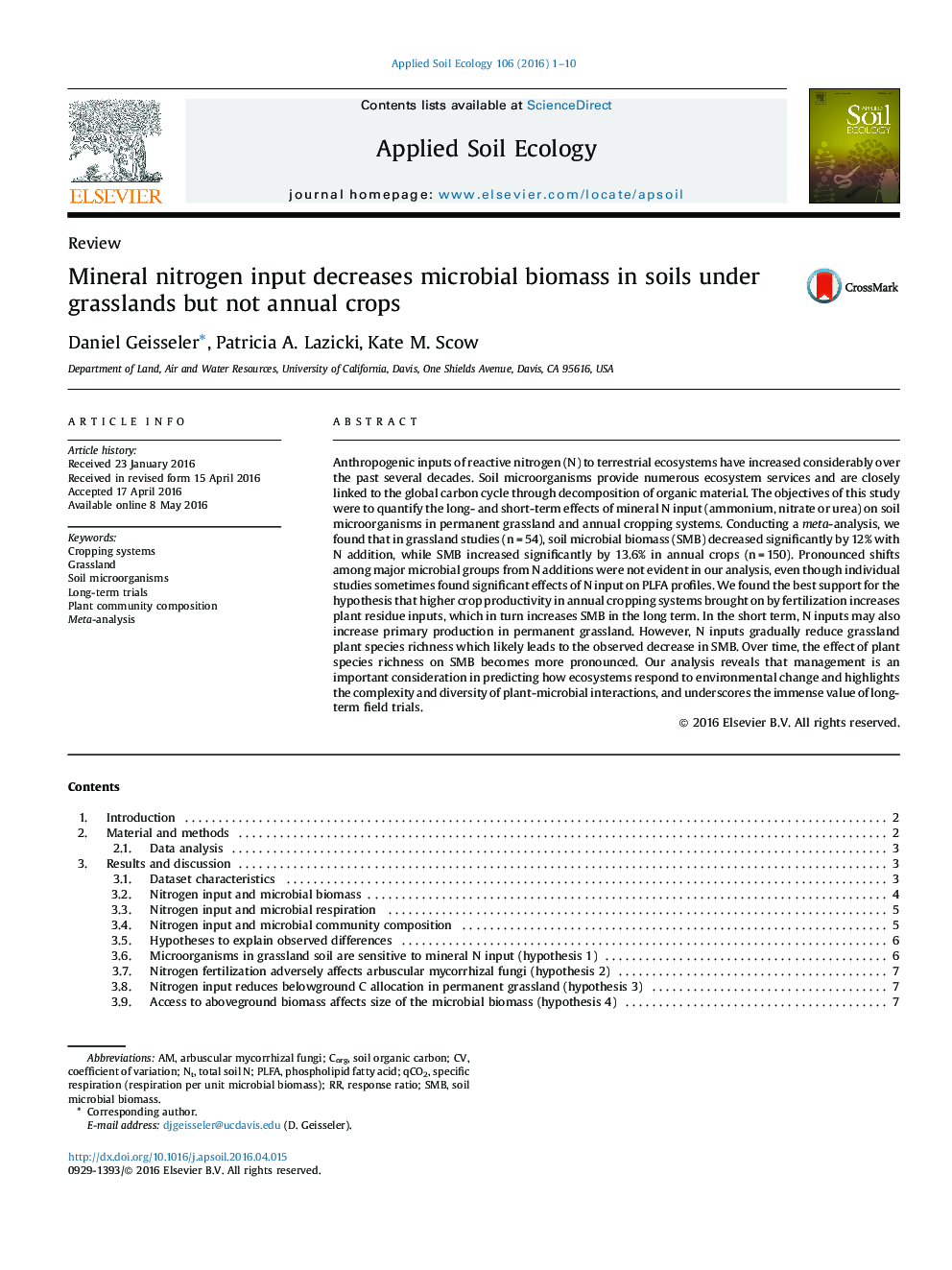| Article ID | Journal | Published Year | Pages | File Type |
|---|---|---|---|---|
| 4381827 | Applied Soil Ecology | 2016 | 10 Pages |
•We studied the effect of N addition on soil microorganisms in a meta-analysis.•Mineral N input decreased soil microbial biomass by 12% in grassland.•The negative effect in grassland is likely due to reduced plant species richness.•In annual cropping systems, mineral N input increased soil microbial biomass by 13.6%.•Soil microbes benefit from higher residue inputs when annual crops are fertilized.
Anthropogenic inputs of reactive nitrogen (N) to terrestrial ecosystems have increased considerably over the past several decades. Soil microorganisms provide numerous ecosystem services and are closely linked to the global carbon cycle through decomposition of organic material. The objectives of this study were to quantify the long- and short-term effects of mineral N input (ammonium, nitrate or urea) on soil microorganisms in permanent grassland and annual cropping systems. Conducting a meta-analysis, we found that in grassland studies (n = 54), soil microbial biomass (SMB) decreased significantly by 12% with N addition, while SMB increased significantly by 13.6% in annual crops (n = 150). Pronounced shifts among major microbial groups from N additions were not evident in our analysis, even though individual studies sometimes found significant effects of N input on PLFA profiles. We found the best support for the hypothesis that higher crop productivity in annual cropping systems brought on by fertilization increases plant residue inputs, which in turn increases SMB in the long term. In the short term, N inputs may also increase primary production in permanent grassland. However, N inputs gradually reduce grassland plant species richness which likely leads to the observed decrease in SMB. Over time, the effect of plant species richness on SMB becomes more pronounced. Our analysis reveals that management is an important consideration in predicting how ecosystems respond to environmental change and highlights the complexity and diversity of plant-microbial interactions, and underscores the immense value of long-term field trials.
